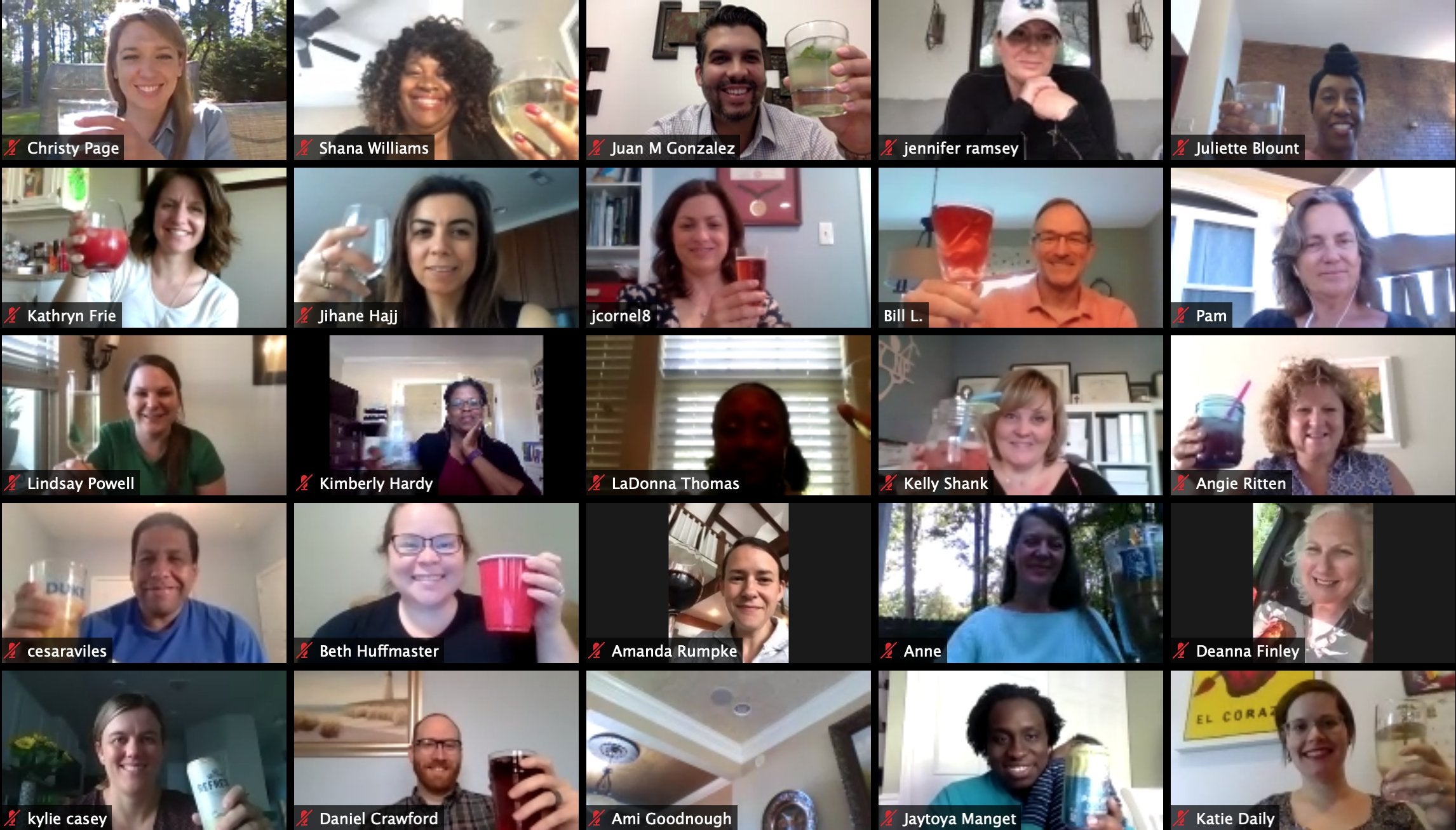Professor graduates from prestigious nurse leadership program

Dan Crawford attends the welcome immersion event for the Duke-Johnson & Johnson Nurse Leadership program on Duke's campus in 2019. Photo courtesy Dan Crawford.
This spring Dan Crawford completed the Duke-Johnson & Johnson Nurse Leadership Program. It’s a prestigious and rigorous yearlong fellowship that seeks to equip participants with the skills to lead diverse interprofessional health care teams.
As the director of Arizona State University's Doctor of Nursing program, a clinical assistant professor at the Edson College of Nursing and Health Innovation, and an advanced practice nurse, Crawford was an ideal candidate.
“This is an opportunity to work with people in similar-type leadership positions across the country through formal leadership training above and beyond what I had in my graduate studies,” Crawford said.
Duke explains that part of the goal of the program is to “train APNs/experienced RNs and their team members to be better able to meet the challenges of the evolving and complex health care environment.”
There are several elements to the program. Three times a month they’d gather virtually for lectures taught by subject-matter experts to tackle different leadership topics such as financial management, population health, designing evaluations and more.
In addition to the lectures, the fellows also participated in breakout discussions on the weekly topics, completed assignments related to the topic and had the opportunity for one-on-one coaching.
“It covered all of the things you need to know as a leader and provided time to practice these skills. Beyond that, we also were connected with an executive coach and also worked with a program coach a couple of times a month,” he said.
Each fellow also had to come up with and complete a project over the course of the year to potentially be implemented in their own organizations.
Crawford focused his project on Edson College’s DNP program. Specifically, he was interested in looking at ways the program can better prepare graduates to care for people living in rural and underserved communities.
To find that out, he created a needs assessment questionnaire that he then sent to several current DNP partner practices and facilities in these communities across Arizona.
With the data collected and analyzed, Crawford says they now have some really valuable information to consider and the next steps include pulling together a team to review curriculum.
At the end of the year-long program, the fellows were supposed to return to Duke for a graduation celebration but due to COVID-19, the May event was moved online.

Duke-Johnson & Johnson Nurse Leadership Program Class of 2020 celebrates their graduation on Zoom.
“We were excited to be going back to campus to meet with each other and share our projects with the people we’ve worked with on Zoom over the last year. It was disappointing but the program leadership did a wonderful job given the circumstances.”
It may not have been the ending Crawford was expecting but that didn’t tarnish the experience or accomplishment, both of which he says has changed him and helped him grow.
“I came away with a better understanding of how to lead diverse teams of people in my current role in a way that allows me to bring a new perspective to a lot of the responsibilities with managing faculty and students who have diverse goals, ambitions and backgrounds. It really lets me better understand what each individual brings to the table and how to better engage individuals toward initiatives that we have moving forward.”
More Health and medicine

The science of sibling dynamics: Why we fight, how we relate and why it matters
We have Mother’s Day, Father’s Day and even Grandparents’ Day. But siblings? Usually they get a hand-me-down sweatshirt and, with…

New study seeks to combat national kidney shortage, improve availability for organ transplants
Chronic kidney disease affects one in seven adults in the United States. For two in 1,000 Americans, this disease will…

New initiative aims to make nursing degrees more accessible
Isabella Koklys is graduating in December, so she won’t be one of the students using the Edson College of Nursing and Health…

